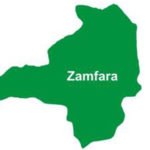Chancellor Angela Merkel clinched a fourth term in Germany’s election Sunday, but her victory was clouded by the entry into parliament of the hard right AfD, the best showing for a nationalist force since World War II.
Angela Merkel, who after 12 years in power held a double-digit lead for most of the campaign, scored around 33 percent of the vote with her conservative Christian Union (CDU/CSU) bloc, according to exit polls.
Its nearest rivals, the Social Democrats and their candidate Martin Schulz, came in a distant second, with a post-war record low 20-21 percent.
But in a bombshell for the German establishment, the anti-Islam, anti-immigration Alternative for Germany (AfD) captured around 13 percent, catapulting it to become the country’s third biggest political force.
Commentators called the AfD’s strong performance a “watershed moment” in the history of the German republic. The top-selling Bild daily called it a “political earthquake”.
Supporters gathered at the AfD party headquarters in Berlin cheered as public television reported the outcome, many joining in a chorus of the German national anthem.
The four-year-old nationalist party with links to the far-right French National Front and Britain’s UKIP has been shunned by Germany’s mainstream but was able to build on particularly strong support in ex-communist eastern Germany.
It is now headed for the opposition benches of the Bundestag lower house, dramatically boosting its visibility and state financing.
Alarmed by the prospect of what Foreign Minister Sigmar Gabriel branded “real Nazis” entering parliament, the candidates had used their final days of campaigning to implore voters to reject the populists.











